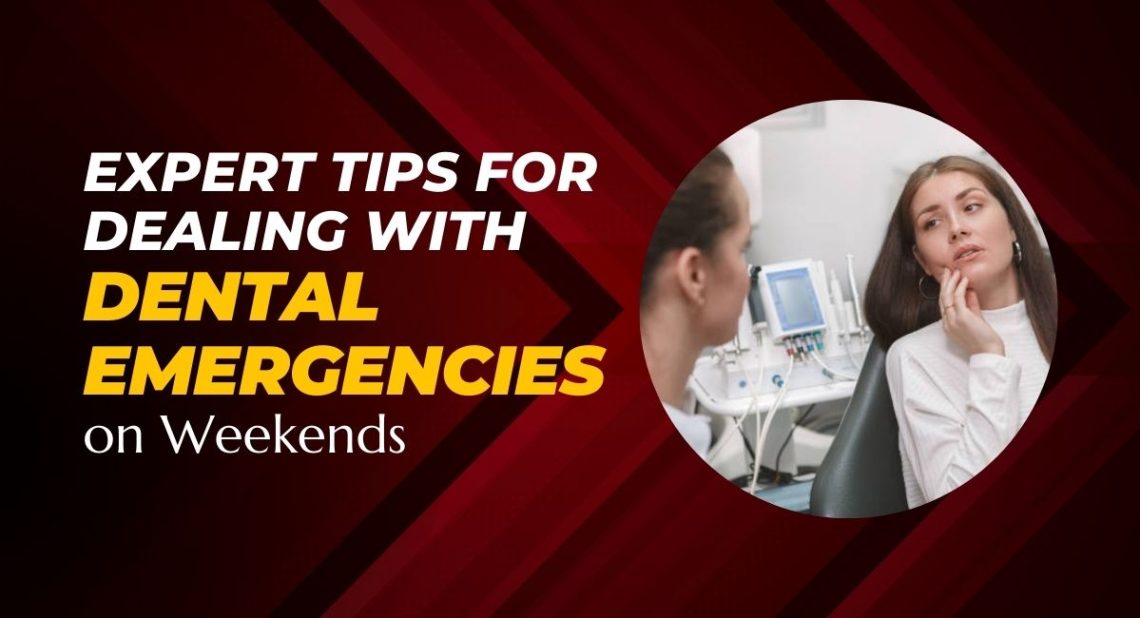Dental emergencies come out of nowhere. Whether you have been playing contact sports in the backyard or simply enjoying your favourite snack, dental emergencies can happen at any time, even on the weekends. You might be wondering whether you can find a emergency dentist London.
It pays to know what is an emergency and when you can wait before seeing a dentist. This is how you can take appropriate action. In this guide, we will discuss what dental emergencies and non-emergency situations are. By the end, you will be able to deal with dental emergencies like a pro.
What Are Dental Emergencies?
Certain dental problems require immediate attention due to their severity. If you experience any of the following symptoms, seek immediate care from your dentist:
- Mouth Bleeding: Bleeding from your gums, tongue, or teeth can knock you hard. A hard blow to the mouth may loosen teeth, while accidentally biting your tongue can lead to significant bleeding.
- Knocked-Out Tooth: If you have a broken tooth during physical activity or due to a fall, quick action could potentially save the tooth. After locating the knocked-out tooth, handle it by the crown, not the root. To preserve the tooth’s vitality, rinse it gently in a cup of milk (avoid using tap water).
- Swelling in the Mouth: Swollen gums accompanied by pain and sensitivity may indicate a severe infection, such as a tooth abscess. These infections can make eating, drinking, and talking extremely challenging, necessitating immediate dental treatment.
- Jaw Injury or Facial Fracture: If you or someone you know sustains a facial injury, it could lead to more serious problems beyond bleeding, swelling, or lost teeth. Seeking immediate attention from an emergency dentist is crucial in such cases.
Non-Urgent Dental Conditions
Not all dental problems require immediate attention, and some can be managed at home until you can see a dentist during regular business hours. Here are a few examples of non-urgent dental issues:
- Chipped Teeth: Accidentally biting into hard foods like candy or nuts can result in a chipped tooth. If the chipped tooth does not cause severe pain, wait until the next business day. Then seek for dental assistance when it is not a weekend.
- Dull Toothaches: Some toothaches can be painful but do not necessarily require immediate attention. OTC pain medicines are meant to offer relief from the pain. Make sure to have one or two until you can see a dentist.
- Debris Stuck Between the Teeth: It is not uncommon for food particles to get stuck between your teeth while eating. While this can be uncomfortable, it is not a dental emergency. You can usually wait until regular business hours to address this issue.
Managing Non-Urgent Tooth Injuries at Home
While waiting to see an emergency dentist near me for non-urgent dental problems, you can take the following steps to alleviate pain at home:
- Over-the-counter pain relievers: If you have toothache, make sure to use non-steroidal anti-inflammatory drugs. They can help relieve toothache pain. Follow the instructions on the packaging to ensure optimum dosage.
- Warm water and salt rinses: Rinse your mouth with a solution of warm water and salt to soothe gum irritation and promote oral hygiene.
- Warm or cold compresses: Applying a warm or cold compress to the affected area outside the mouth can help reduce swelling and alleviate pain.
- Maintain good dental hygiene: Brushing your teeth and flossing twice a day is essential for maintaining oral health. Regular brushing and flossing can also help dislodge any debris stuck between your teeth.
- Avoid irritating foods and drinks: If you have a non-urgent tooth injury, it’s best to avoid consuming foods and drinks that may exacerbate the issue. Steer clear of extremely hot or cold foods, as well as sticky or hard-to-chew items. Opt for softer foods and lukewarm beverages to minimize discomfort.
Getting Your Smile Straight with Removable Appliances
Final Thoughts
Knowing what counts as a dental emergency can help you respond appropriately in urgent situations and determine if immediate dental care is necessary. In cases of severe bleeding, knocked-out teeth, mouth swelling, or facial injuries, it is crucial to seek prompt attention from an emergency dentist. However, for non-urgent situations you can manage the discomfort at home and schedule a regular dental visit.
By staying informed and taking appropriate action, you can effectively handle dental emergencies. Top of Form Wellness Wisdom Worldwide.
Take care of your teeth and prioritize your oral health. Reach out to a dental professional for immediate attention and guidance. If you have been experiencing a dental emergency for a while, contact experienced emergency dental care. Contact your dentist at Emergency Dentist London Pro as soon as possible. This is how you can receive the necessary treatment and care.





